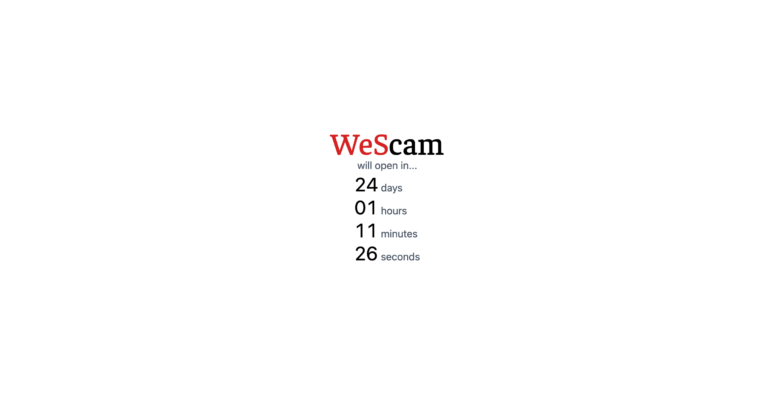University To Unveil William Manchester Writings Amid Return of JFK Manuscript
Editor’s Note: Corrections – In the original printed story, Assistant University Archivist Valerie Gillespie was misquoted; the quote should read, as it now does online, “none of us have even seen it.” We regret these errors.
When the University finally opens the hugely acclaimed, meticulously archived, and wonderfully colorful writings of the late William Manchester next Thursday, the administration will be recognizing more than just an outstanding catalogue of work. Manchester worked at the University for nearly 50 years, as a publication editor, writer-in-residence, and professor of history. Manchester and his collection are not only seen as a piece of the school’s history, but that of the entire United States.
“As a teacher, a writer and as a university citizen, [Manchester] exemplified the connection of academia and public life that is part of the core identity of Wesleyan,” wrote President Michael Roth in his introduction to the upcoming exhibition. “The study of the Manchester Papers…will tell us much about modern history and the role of this University in it.”
Having published 18 books in 20 languages, Manchester is remembered in University lore as a man passionate about history, about writing, and about his country. Yet, it was his most famous work, “The Death of a President,” published in 1967, that propelled Manchester into the limelight. The controversy surrounding it forever rooted him in American mystique.
Born in Attleboro, Mass. in 1922, Manchester arrived at the University in 1955 as managing editor for the Department of School Services, having already earned a Purple Heart at Okinawa in World War II. He began a career as a newspaperman, and published a handful of books, both novels and nonfiction. In 1962, Manchester began his journey to “The Death of a President” with his profile of John F. Kennedy, titled “Portrait of a President.” Manchester, a great admirer of JFK, interviewed the president himself for the book and, with its publication, earned the Kennedy family’s admiration and favor.
However, a year later, the man Manchester so venerated was assassinated. The ensuing media sensation would drive Jackie Kennedy to seek out someone to write an authorized version of the story.
An October 2009 article in Vanity Fair magazine titled “A Clash of Camelots” claimed that Jackie Kennedy “preferred that no book be written, but as that was impossible, she went in search of an author. ”Given Manchester’s prior work and personal admiration of JFK, Pierre Salinger, the Kennedy’s press secretary, suggested he was a perfect fit for the task. When first approached to write the book, Manchester supposedly asked his secretary, “How can I say no to Mrs. Kennedy?” She promptly replied, “You can’t.”
Manchester met with Robert Kennedy, and the pair agreed that neither wished to capitalize on the tragedy. Manchester accepted only $40,000 for the book, with the rest of the royalties going towards the Kennedy library. Jackie and Robert Kennedy were to both personally review the finished manuscript.
With the book to be released in 1968, Manchester devoted himself to the project, leaving his post and family in Middletown in order to travel to Washington. Working nearly 100 hours each week, Manchester amassed thousands of pages of notes. He researched, highlighted, and reworked feverishly in a veritable rainbow of felt-tipped marker. However, such devotion and concentration took its toll on the writer, both emotionally and physically. He suffered severe weight loss and insomnia before finally being admitted to a Connecticut hospital for nervous exhaustion. He remained hospitalized for eight weeks, while he finished the manuscript.
The tentative title of the book was “The Death of Lancer,” after JFK’s secret service codename. According to Vanity Fair, Manchester’s editor and friend, upon finishing the hefty 1,201-page behemoth, claimed, “This is the finest book I have read in 20 years [at the publication office]… I couldn’t stop crying, but I couldn’t stop reading.”
The few copies he circulated amongst his closest friends and editors were met with acclaim, save for two exceptions. Both Robert and Jackie Kennedy refused to read the manuscript at all, fearing it would dredge up painful memories, instead pushing it to a handful of their closest aides. By 1966, the book was ready for publication, two years ahead of schedule.
Copies were sent to magazines to gather bids for the right to serialize the book. Look magazine snapped up the serialization rights for a record $665,000.
“[He] was flabbergasted. It was a lot of money back then. It was like five million dollars today,” said Manchester’s son, John, in Vanity Fair.
Manchester, along with his editors and even Robert Kennedy himself, reveled at the success—but Jackie Kennedy did not share the excitement. Despite her refusal to read the book, the former president’s wife was appalled at the notion that Manchester could profit from his book, believing that all the proceeds should go directly to the Kennedy library. Jackie had her secretary heavily edit and censor the book despite objections from Manchester that she “was not qualified to edit historical work.” Having already obtained Robert Kennedy’s approval, Manchester and his publishers thought nothing of these demands until the senator unexpectedly withdrew his support and sided with Jackie.
Manchester, on vacation at the time, was tracked down and forced into making heavy edits to his original work. Even after this, Jackie Kennedy was not appeased, filing an injunction with Look stating that she had full right over book’s content since she had provided essential information and interviews. According to Vanity Fair, both sides dug in, Kennedy vowing to “ruin” Manchester, while he adamantly declared that he would “die for this book.” The battle made headlines across the nation and turned Manchester’s home in Middletown into a media circus. Reporters followed his children home from school and Bayer aspirin reportedly offered him an endorsement deal to relieve the headaches he was getting from the fiasco. But suddenly, in the midst of the hysteria, Jackie dropped the case.
Fearing that the negative publicity would affect Robert Kennedy’s political career, the Kennedy’s surrendered to Manchester, under the condition that he was to cut out a handful of pages from the serialization and text and hand the book’s printing rights over to the Kennedy family.
The book finally hit the stores and became a near instant bestseller. The book was lauded for its dense, emotional prose and meticulous detail.
Manchester returned to Wesleyan, but his book’s profits went to the Kennedy Library, along with all his manuscripts and tedious research, where, under Jackie Kennedy’s orders, they would remain locked away until 2067. Even now, as the original manuscript returns to the University, it remains shrouded in secrecy, heavily censored and sealed away. It remains under the control of the Kennedy family.
“Even in the archiving process we can’t read it legally,” said Assistant University Archivist Valerie Gillispie, “None of us haven’t even seen it.”
As the exhibition celebrating Manchester’s illustrious career commences, the piece of U.S. history that is “The Death of a President” remains locked away in the historian’s former office on the second floor of the Olin Library, a fascinating part of school history, Kennedy mystique, and the American literary legacy.







Jackie Kennedy has pass ed on so how can her “orders” still remain in effect? The American people have the right to know all the details.
I am confused as why the “Death of a President” manuscript and all source material isn’t covered by the 1992 “JFK Assassination Records Collection Act.”
quote
The Assassination Records Review Board (“Review Board”) is an independent Federal agency created by the JFK Act to oversee the identification and release of records related to the assassination of President John F. Kennedy. The JFK Act granted the Review Board the mandate and the authority to identify, secure, and make available, through the National Archives and Records Administration (“NARA”), records related to President Kennedy’s assassination.”
/quote
If there was EVER an “assassination document” under this law it would be the Manchester original manuscript and all source material. At the very least, those historical items should have been reviewed by the Assassination Records Review Board for release. For more information on the JFK Act and the impressive job of the ARRB: http://www.fas.org/sgp/advisory/arrb96/intro.html
Thank you for posting this news, however, I would like to know how and why are William Manchester’s materials leaving the JFK Library, how and why are they coming to Wesleyan University, why now, and why and how are they still governed by a 1967 deposit agreement between Manchester and the Kennedy’s and the JFK Library when they are now going to be deposited with Wesleyan University? This is not explained in the article. Also, is this event on Thursday, February 4th, open to the public? If so, I would like to attend. I would like to meet Justin Pottle too. Please email me at Ebackes@nyap.rr.com Thank you.
The Argus has incorrect facts. The opening and exhibit occurred last year (2009). There is no event scheduled this week. I was also misquoted. No one has seen the restricted documents, including the processing archivists, other than to make sure they are indeed restricted as required by court order.
The finding aid to the collection is online: http://www.wesleyan.edu/libr/schome/FAs/ma1000-169.html
Ms. Gillispie, Thank you for updating the information. I appreciate the link to the finding aid.
Oh, ha ha ha this is quite rich!! Quite possibly the most humiliating example of Argus laziness and incompetence since 2009! It will go down as one of the more memorable legal imbroglios to (almost) be touched off by this careless bunch of resume-padders who call themselves “reporters”.
Seriously, if you’re going to re-write a Wesleyan Connection article that links to a Vanity Fair article, and then rewrite that too, maybe you should at least LOOK AT THE DATELINE?
Surely the author behind this fiasco has been thoroughly chastened for his journalistic misconduct and breach of ethics. But the editor(s) who approved it in the first place should be sacked.
How embarrassing…will the proper heads roll, Argus?
So is William Manchester!